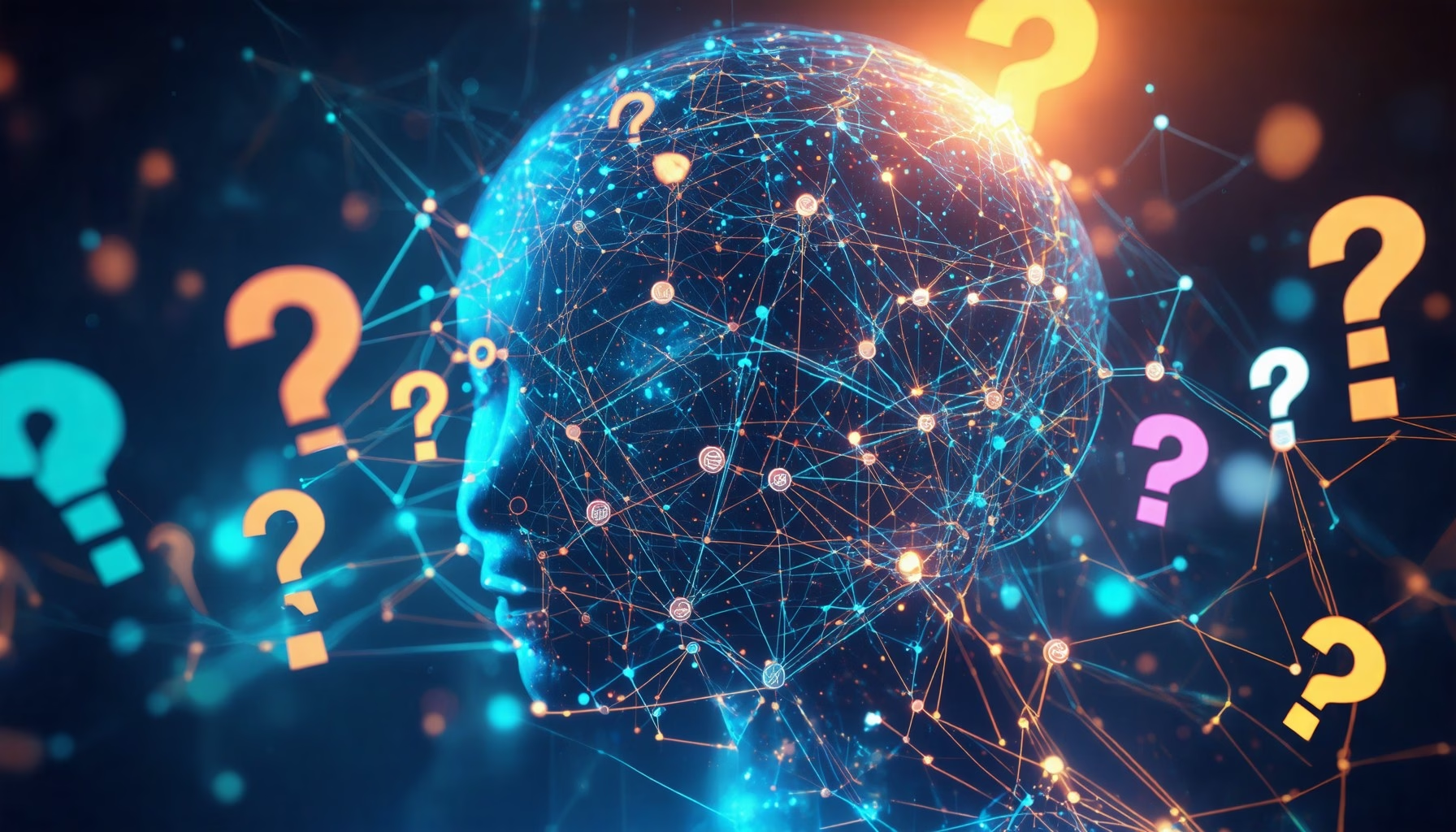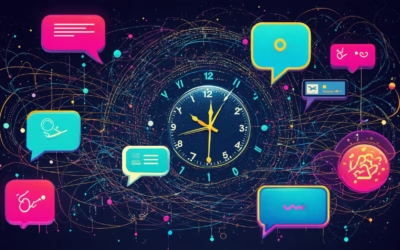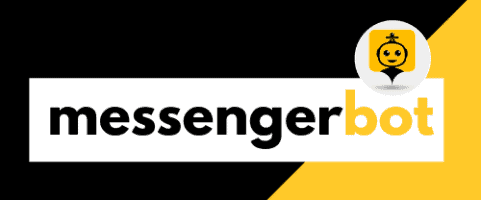Key Takeaways
- Mastering chatbot questions enhances user engagement and communication with AI.
- Explore diverse categories of questions, from fun inquiries to technical support, for richer interactions.
- Utilize structured techniques to ask specific and clear questions, maximizing the effectiveness of your conversations.
- Incorporate keywords related to your interests to improve chatbot responses and accuracy.
- Access a comprehensive chatbot questions and answers list for quick reference and enhanced learning.
- Engage with medical chatbots for accurate health information and patient support.
- Implement feedback and survey questions to continuously improve chatbot interactions and user satisfaction.
In the rapidly evolving world of artificial intelligence, mastering chatbot questions is essential for effective communication and engagement. Whether you’re a business looking to enhance customer interactions or an individual curious about the capabilities of AI, understanding what to ask a chatbot can significantly improve your experience. This article will delve into the fundamentals of chatbot questions, providing a comprehensive overview of what you can ask and how to frame your inquiries for optimal responses. We will explore various techniques for effective communication, share a rich list of chatbot questions and answers, and highlight engaging examples tailored for different contexts, including fun and medical scenarios. By the end of this guide, you’ll be equipped with the knowledge to navigate AI conversations confidently, ensuring that you can extract valuable insights and enjoy meaningful interactions with chatbots.
What can I ask a chatbot?
Understanding the Basics of Chatbot Questions
Engaging with a chatbot can be a fun and interactive experience. Here are some creative and entertaining ideas to explore:
- Storytelling: Request the chatbot to tell you a story. You can specify a genre, such as fantasy, mystery, or science fiction, to tailor the narrative to your interests.
- Poetry: Ask the chatbot to compose a funny poem or a haiku. This can be a delightful way to see how it interprets humor and creativity.
- Riddles and Brain Teasers: Challenge the chatbot with riddles or brain teasers. This not only tests its capabilities but also provides you with a fun mental exercise.
- Tongue Twisters: See if the chatbot knows any tongue twisters. This can lead to amusing interactions and a light-hearted conversation.
- Would You Rather Questions: Engage in silly “would you rather” scenarios. This can spark interesting discussions and reveal the chatbot’s personality.
- Trivia Questions: Ask the chatbot trivia questions on various topics, such as history, science, or pop culture. This can be both educational and entertaining.
- Advice on Everyday Problems: Inquire about practical advice for common issues, such as time management tips or how to stay motivated.
- Learning New Skills: Request information on how to learn a new skill or hobby, such as cooking, coding, or playing an instrument.
- Current Events: Ask the chatbot about recent news or trends in technology, entertainment, or health. This can provide insights into its knowledge base.
- Personalized Recommendations: Seek recommendations for books, movies, or music based on your preferences. This can help you discover new favorites.
By exploring these questions, you can maximize your interaction with a chatbot, making it both enjoyable and informative.
Chatbot Questions and Answers List: A Comprehensive Overview
To enhance your experience with chatbots, it’s beneficial to have a chatbot questions and answers list at your disposal. This can include:
- Chatbot Questions Examples: A variety of questions that can be asked to test the chatbot’s capabilities.
- Chatbot Questions and Answers PDF: A downloadable resource that compiles common questions and their answers for easy reference.
- Chatbot Interview Questions: Specific questions designed to evaluate the chatbot’s performance in a simulated interview setting.
- AI Chatbot Questions: Questions tailored to assess the chatbot’s AI-driven responses and interactions.
- Medical Chatbot Questions and Answers: A specialized set of questions for healthcare-related chatbots, ensuring they provide accurate medical information.
Utilizing these resources will not only improve your interactions but also help you understand the full potential of chatbots in various contexts.
How to Ask Chatbot Questions?
To effectively ask questions to a chatbot, follow these structured guidelines:
- Start with a Greeting: Begin by addressing the chatbot in a friendly manner. For example, “Hello, Chatbot!” This sets a positive tone for the interaction.
- State Your Purpose: Clearly articulate what you need help with. For instance, “I need assistance with finding information on travel destinations.”
- Provide Context: Offer relevant details that can help the chatbot understand your request better. For example, “I’m looking for family-friendly vacation spots in Europe.”
- Ask Specific Questions: Formulate clear and concise questions. Instead of asking, “Tell me about travel,” try, “What are the top three family-friendly destinations in Europe?”
- Use Keywords: Incorporate keywords related to your topic of interest. This helps the chatbot retrieve more accurate information. For example, use terms like “budget travel,” “activities for kids,” or “cultural experiences.”
- Request Follow-Up Information: If the chatbot provides an answer, ask follow-up questions to dive deeper. For example, “Can you suggest activities for kids in those destinations?”
- Be Patient and Polite: Remember that chatbots are programmed to assist you. If the response isn’t what you expected, rephrase your question or ask for clarification.
By following these steps, you can enhance your interaction with chatbots, ensuring you receive the most relevant and helpful responses. For further insights on chatbot interactions, refer to resources like the Journal of Human-Computer Interaction and industry blogs on AI communication strategies.
Free Chatbot Questions to Enhance User Interaction
Engaging with chatbots can be a fun and informative experience. Here are some free chatbot questions to enhance user interaction:
- What are some funny chatbot questions? Asking light-hearted questions can make the interaction enjoyable. For example, “What’s your favorite joke?” or “Can you tell me a riddle?”
- What are some good chatbot interview questions? If you’re testing a chatbot’s capabilities, consider asking, “How do you handle complex queries?” or “Can you provide examples of your previous interactions?”
- What are common chatbot survey questions? To gather feedback, you might ask, “How satisfied are you with this service?” or “What improvements would you suggest?”
Utilizing these questions can lead to more engaging conversations and better user experiences. For a comprehensive overview of chatbot questions and answers, check out our chatbot questions and answers list.
What are good questions to ask ChatGPT?
When engaging with ChatGPT, asking the right questions can significantly enhance the quality of the interaction. Here are some effective questions to consider:
- Clarification Questions:
- “Can you explain that concept in simpler terms?”
- “What are the key differences between X and Y?”
- Exploratory Questions:
- “What are the latest trends in [specific topic]?”
- “Can you provide examples of [specific scenario]?”
- Advice and Recommendations:
- “What are some best practices for [specific task]?”
- “How can I improve my skills in [specific area]?”
- Problem-Solving Questions:
- “What steps should I take to resolve [specific issue]?”
- “Can you suggest strategies for overcoming [specific challenge]?”
- Creative and Hypothetical Questions:
- “What would happen if [hypothetical scenario]?”
- “Can you help brainstorm ideas for [specific project]?”
- Feedback and Improvement:
- “What are common mistakes people make in [specific field]?”
- “How can I enhance my approach to [specific task]?”
- Technical and Detailed Inquiries:
- “Can you provide a detailed explanation of [technical concept]?”
- “What are the implications of [recent research or development]?”
By utilizing these types of questions, users can maximize their interactions with ChatGPT, leading to more informative and productive conversations. For a comprehensive resource on chatbot questions and answers, consider checking out our guide on creating effective chatbots.
Chatbot Questions and Answers Examples for Better Engagement
To foster engaging conversations with chatbots, it’s essential to utilize a variety of chatbot questions and answers examples. Here are some categories that can enhance user interaction:
- General Knowledge:
- “What is the capital of France?”
- “Can you tell me about the history of the internet?”
- Fun and Light-hearted:
- “Tell me a joke!”
- “What are some funny chatbot questions?”
- Specific Queries:
- “What are the best practices for using AI in marketing?”
- “Can you provide a chatbot questions and answers PDF for reference?”
- Feedback and Improvement:
- “How can I improve my chatbot’s responses?”
- “What are common chatbot questions and answers that users ask?”
These examples can be tailored to fit various contexts, ensuring that users receive relevant and engaging responses. For more insights, explore our free trial offer to experience the capabilities of Messenger Bot firsthand.
What is the most asked question on ChatGPT?
The most asked question on ChatGPT is often related to its capabilities and functionalities, such as “What can ChatGPT do?” This question reflects users’ curiosity about the AI’s applications in various fields, including customer service, content creation, and personal assistance.
ChatGPT is designed to engage in natural language conversations, providing users with information, answering questions, and assisting with problem-solving. Here are some key functionalities:
- Conversational AI: ChatGPT can simulate human-like conversations, making it useful for customer support and virtual assistants.
- Content Generation: It can create articles, blogs, and social media posts, helping marketers and writers generate ideas and content efficiently.
- Language Translation: ChatGPT can assist in translating text between different languages, enhancing communication across linguistic barriers.
- Educational Support: It serves as a study aid, providing explanations and answering queries related to various subjects, from mathematics to history.
- Programming Help: Developers can use ChatGPT for coding assistance, debugging, and learning new programming languages.
For more detailed insights into ChatGPT’s capabilities, refer to OpenAI’s official documentation and research papers, which outline its architecture and training methodologies (OpenAI, 2023). Additionally, industry analyses highlight the growing integration of AI chatbots in business operations, emphasizing their role in enhancing customer engagement and operational efficiency (Gartner, 2023).
Analyzing Popular Queries in AI Conversations
Understanding the most common queries posed to ChatGPT can provide valuable insights into user behavior and interests. Popular questions often revolve around practical applications, such as:
- How can I use ChatGPT for my business?
- What are the limitations of ChatGPT?
- Can ChatGPT help with creative writing?
- What industries benefit most from AI chatbots?
These inquiries not only highlight the versatility of ChatGPT but also guide businesses in tailoring their chatbot interactions to meet user expectations. By analyzing these popular queries, organizations can enhance their chatbot questions and answers list, ensuring they address the most relevant topics for their audience.
Difficult Questions to Ask Chat GPT for Deeper Insights
For users seeking to explore the depths of ChatGPT’s capabilities, asking challenging questions can yield fascinating insights. Here are some examples of difficult questions that can stimulate engaging conversations:
- What ethical considerations should be taken into account when using AI?
- How does ChatGPT handle ambiguous or contradictory information?
- Can you explain the training process behind AI models like ChatGPT?
- What are the future trends in AI and chatbot technology?
These questions not only push the boundaries of what ChatGPT can discuss but also encourage users to think critically about the implications of AI technology. Engaging with such topics can lead to a richer understanding of AI’s role in society and its potential future developments.
What are good questions to ask?
When engaging with chatbots, asking the right questions can significantly enhance the interaction. Here are some fun chatbot questions to keep conversations light and enjoyable:
Fun Chatbot Questions to Keep Conversations Light
- “If you were a superhero, what would your superpower be?”
- “What’s your favorite joke?”
- “If you could travel anywhere in the world, where would you go?”
- “What’s the most interesting fact you know?”
- “If you could have dinner with any fictional character, who would it be?”
These questions not only lighten the mood but also allow users to explore the chatbot’s personality and capabilities. For a more structured approach, consider using a chatbot questions and answers template to guide your interactions.
Chatbot Interview Questions: Preparing for AI Interactions
When preparing for a chatbot interaction, especially in a professional context, it’s essential to ask insightful questions. Here are some effective chatbot interview questions:
- “What are your main functionalities?”
- “How do you handle user queries that you cannot answer?”
- “Can you provide examples of how you’ve improved user engagement?”
- “What languages do you support?”
- “How do you ensure data privacy and security?”
These chatbot interview questions can help users understand the capabilities and limitations of the AI, ensuring a more productive interaction. For a deeper dive into effective questioning techniques, explore the AI Chat Assistant by Brain Pod AI, which offers advanced functionalities for enhanced user engagement.
What do people really ask chatbots?
People ask chatbots a wide range of questions, reflecting their curiosity and the need for assistance in various aspects of life. Research indicates that a significant portion of chatbot interactions revolves around personal inquiries, with approximately 5% of conversations involving users seeking advice on topics such as relationships and emotional support. Common questions include:
- Personal Advice: Users often turn to chatbots for guidance on flirting, relationship dilemmas, or coping with issues like infidelity. This highlights the human tendency to seek connection and validation, even from AI.
- Academic Assistance: Many users ask chatbots for help with homework or study tips. This trend underscores the role of chatbots as educational tools, providing instant access to information and resources.
- Entertainment and Engagement: Questions about games, jokes, or fun facts are prevalent, showcasing the desire for light-hearted interaction and entertainment.
- Technical Support: Users frequently inquire about troubleshooting issues, product recommendations, or how to navigate technology, indicating a reliance on chatbots for practical assistance.
- Health and Wellness: Queries related to mental health, fitness advice, and general well-being are increasingly common, reflecting a growing awareness of health issues and the need for accessible information.
The effectiveness of chatbots in addressing these inquiries can be attributed to their ability to communicate clearly and provide relevant information quickly. As noted by experts, the perception of intelligence in chatbots is often linked to their writing quality, which can influence user trust and engagement (Willison, 2023).
Incorporating platforms like Messenger Bot can enhance user experience by providing a familiar interface for these interactions, allowing users to seamlessly access chatbot services for their diverse needs. Overall, the questions posed to chatbots reveal much about human behavior and the evolving role of AI in our daily lives.
AI Chatbot Questions: Understanding User Intent
Understanding user intent is crucial for optimizing chatbot interactions. By analyzing the types of questions users ask, businesses can tailor their chatbot responses to better meet user needs. Here are some key insights into user intent:
- Clarification Requests: Users often seek clarification on services or products, indicating a need for more detailed information. This can be addressed by programming chatbots to provide comprehensive answers or direct users to relevant resources.
- Feedback and Suggestions: Many users utilize chatbots to provide feedback or suggestions about services. Implementing chatbot survey questions can help gather valuable insights to improve offerings.
- Emotional Support: As previously mentioned, users frequently ask for personal advice, reflecting a desire for emotional connection. Chatbots can be designed to respond empathetically, enhancing user engagement.
By understanding these intents, businesses can create more effective chatbot questions and answers that resonate with users, ultimately improving satisfaction and loyalty.
Chatbot Survey Questions to Gather Valuable Feedback
Gathering feedback through chatbot survey questions is essential for continuous improvement. Here are some effective chatbot survey questions to consider:
- How satisfied are you with the information provided by our chatbot?
- What additional features would you like to see in our chatbot?
- Did the chatbot answer your question effectively? (Yes/No)
- How likely are you to recommend our chatbot to others?
Utilizing these questions can help businesses refine their chatbot interactions and enhance user experience. For more comprehensive resources, consider exploring a chatbot questions and answers PDF that outlines best practices and templates for effective engagement.
Exploring Chatbot Questions and Answers
Understanding the various chatbot questions and their corresponding answers is essential for enhancing user interaction and optimizing communication strategies. This section delves into valuable resources and examples that can aid users in effectively engaging with chatbots.
Chatbot Questions and Answers PDF: A Resource for Users
For those looking to streamline their interactions with chatbots, a chatbot questions and answers PDF can serve as an invaluable resource. This document typically includes:
- Chatbot questions examples: A curated list of common inquiries users might pose, ranging from simple greetings to complex queries about services.
- Chatbot questions and answers list: A comprehensive overview that provides not only the questions but also well-crafted responses that can enhance user satisfaction.
- Chatbot questions and answers dataset: A collection of data that can be utilized for training AI models, ensuring that chatbots are equipped to handle a variety of user intents.
Utilizing such a PDF can significantly improve the efficiency of chatbot interactions, making it easier for users to find the information they need quickly.
Medical Chatbot Questions and Answers for Healthcare Professionals
In the healthcare sector, medical chatbot questions and answers play a crucial role in patient engagement and information dissemination. Healthcare professionals can leverage these chatbots to:
- Provide accurate information: Answer common medical inquiries, helping patients understand symptoms, treatments, and medications.
- Enhance patient interaction: Use AI chatbot questions to facilitate conversations that can lead to better patient outcomes.
- Gather feedback: Implement chatbot survey questions to collect valuable insights from patients regarding their experiences and satisfaction levels.
By integrating these medical chatbot questions and answers, healthcare providers can ensure that they are meeting the needs of their patients while also streamlining their operations.







